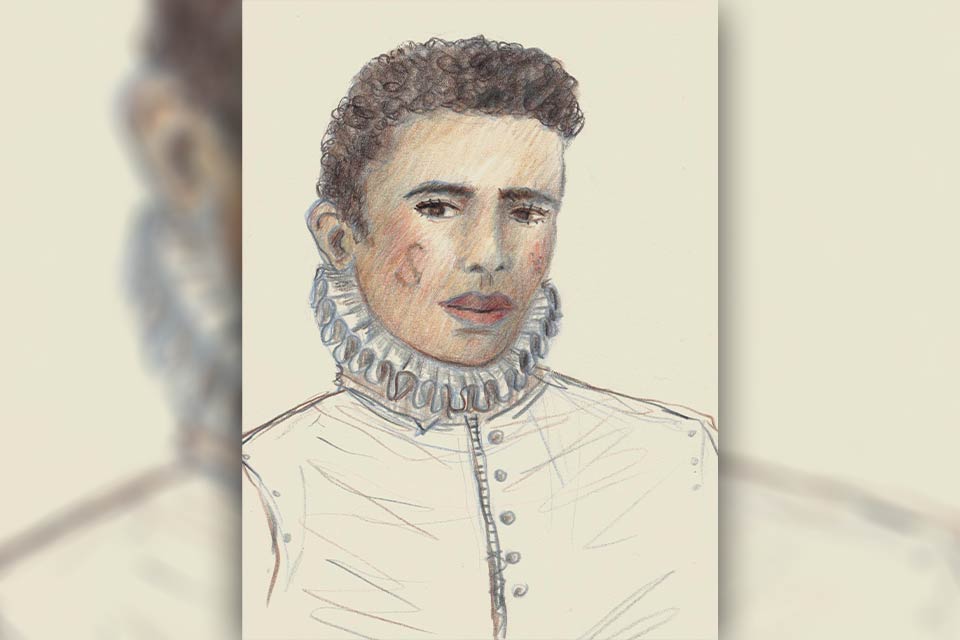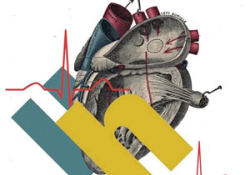Right and Left; or, Of Mystics and Politicians

In sixteenth-century Spain, the Tribunal of the Holy Inquisition is facing one of its most complicated cases ever: Elena Céspedes, a mixed-race slave—who was freed when her mistress died—is accused of bigamy and homosexuality. However, the opinions of the physicians who examine her are ambiguous and contradictory since they cannot decide if the accused is a woman or a man. This is the true story of Elena de Céspedes, an alchemist, tailor, surgeon, and soldier, who was a hermaphrodite and the first woman (?) physician in Spanish history.
Of course, in the days of Elena-Eleno and María, politics wasn’t divided into right and left. But with that unique gift of hermaphrodites, Elena could predict and suffer over the times to come. She was deeply puzzled by the great confusion that would manifest at the end of the twentieth and the beginning of the twenty-first centuries. Politics would be the great arena of debate. Politics would become part of psychology, permissiveness, and irresponsibility. The correct and incorrect would not be founded on the rules of logic but rather quite the opposite. The greater the dogmatism, the more widespread the blindness.
The matter of dogmatism was something she understood very well indeed. The Inquisitors were well versed in the subject. They were experts. Their mighty legacy would be felt for centuries and centuries to come. Hence, fascism and communism. One and the same thing. Even though each one believes with utter conviction in the true and rightful goal he is working to achieve. The same sort of postponement of the things of this world for the sake of a humanitarian, utopic, and hypothetical future that will never come.
Both fascism and communism inherited torture, lies, and corruption. To achieve what cannot be while promising to cleanse the earth of impurities, they are examples of high religiosity. The strange part is that they stop thinking. They prefer to dispense with reason.
Ever since the Inquisition, for Elena, the three are one. All three make inquiries and ravage the poetic word. Their crime is semantic minutiae. And their next crime is burning bodies, mass executions, and extermination camps. Right and left. Both cremate the truth and, naturally, bodies, too. It’s all about distortion. Betraying words. Saying what is not. Rather, making words state precisely the opposite of what they mean. If something is good, they say it’s bad.
That is why mystics were born. Because for them, words are sacred territory and inviolable. By contrast, in the poorly named profession called politics, the violated word prevails and is meant to distort and sway those with little capacity to judge. Those with scant judgment thus see themselves as great thinkers and sublime writers; they need the shrill, authoritarian voice of a bossy and paranoid leader to drag them along and allow them to do what they always yearned to do but never dared. It’s delicious to get permission to break, tear, attack, burn, and kill. It’s even better to have someone in mind you want to destroy with the greatest quantity of lies and bludgeons. To further ramp up the false accusations and state the opposite of what is true makes them howl with enormous satisfaction. The greater the blasphemy and the lie, the more absurd and removed from reality, the more desirable.
That is why Eleno finds his best ally in war. Things are clear in war: the enemy is the enemy, and no one’s pretending. He’s sick of hypocrisies and empty words, ambiguous nuances, fake smiles, concealed gestures, endless performances, megalomanias, schizophrenias, hysterias, and paranoias.
He would have preferred to belong to another species in the animal kingdom than the human—at least to have avoided that idiocy.
He would have preferred to belong to another species in the animal kingdom than the human—at least to have avoided that idiocy. Animals aren’t stupid. Cleopatra-Amenofis is a worthy he-she cat and highly intelligent. The same is true of dogs, horses, donkeys, parrots, insects, and bats, all possessors of great gifts that are overlooked by humans.
I’ve never heard a donkey insult a human being, Eleno-Elena says to themself, insisting and repeating it over and over, but the opposite happens every day. They even attribute all the human defects to animals: what a mistake! Let’s destroy all the myths: from now on, cats are faithful, burros are intelligent, dogs are independent, mules are tolerant, lions are cowards, foxes are foolish, and sheep are courageous. Because every animal has its own identity just like every man. General rules are the biggest mistake. Long live the exceptions!
And so: right is clever: left is sinister. The chosen one sits at the right hand. But the heart is located on the left: yet more evidence that rules are pointless.
The chosen one sits at the right hand. But the heart is located on the left.
Things become complicated when the right must always be on the right but the left will be wobbly and take on the right’s methodology without realizing it. Without realizing it or wanting it, when insanity has a system, and it doesn’t matter by what means it achieves its aims. Ultimately, the lust for power makes every path crooked.
Let’s turn now to mystics and politicians—the spiritual ones and the practical ones, those who amend and those who err.
Thanks to a period of illness, Elena-Eleno meditated quite a bit. Their meditations fused. For example, religion: We are living in a multireligious era. There’s a great variety to choose from: wholesale and retail, the accepted, the semitolerated, and the rejected. Each one goes through all three categories, depending on the point of view.
We begin with the Christian religion, in the center of the axis. Why? Because it prevailed through the violence of wars and battles. The Muslim, same thing: it sought to win top billing over Christianity through a holy war. Both fought, lost, and won, and so it went on forever and ever, each one claiming itself as the best and only religion. The Jewish religion, the original one, got caught in the middle. The other two attempt to wipe it out without success despite forced conversions, massacres, persecutions, and burnings.
Centuries later, the idea of the final solution will come along, intended to be put into effect by the most modern and scientific National Socialist methods: bring all the Jews in the world together, relocate them to concentration camps, kill them, and cremate them. A little more advanced and efficient than the burnings in the public plazas during the era of our Elena. And let the Devil take the hindmost. Especially the Devil.
Elena witnesses all of it. In the Alpujarras war, she faced the Muslims’ desire to recapture the southern tip of Europe and settle again in the Iberian Peninsula. They gave battle to the Christians and won, but the seed of hate stayed there, latent and waiting to come back to life, even if it were centuries in the future. And what had to be reborn was born again: on March 11, 2004, in the Town and Court of Madrid.
The Christians prefer the Arabs: perhaps they’re afraid of them, and for that reason, don’t denounce them too much. By contrast, the Jews, considered traitors for thousands of years, are slaughtered and vilified. They are credited with all that is perverse about them—not them, but the Christians themselves. What they hate most about them is their survival, and that it proves impossible to exterminate them once and for all. They prefer to submit to the Muslims, who, in their opinion, seem stronger. When the truly mighty ones are those who never disappear. One more reason to hate them.
Irrational hate: tautology.
The Jews quietly advance: They invent, study, and make discoveries. No one says thank you, but humanity progresses thanks to them.
The last straw will be in centuries to come when they are once again victorious and back in their original homeland. All the intense hatred for the little Jew will be directed against the small country, which will be accused of being just like its tormentors.
Elena sees all this coming with her prophetic gifts. And she thinks about it in her sickbed because being sick is the best time to think, write, and understand.
Now, she dwells on the mystics.
On Yoav ben Aviv.
Who read the Song of Songs, and every word engendered another word.
As if the poem were giving birth to itself.
As if it had never been written.
As if it were the first time.
Like a childhood gesture turned to stone.
One lip pressed against the other to keep from crying.
Something never heard before and music that played.
It was the only salvation. That rhythm which drives away all the nastiness. The power of the letter, but the well-articulated, well-rendered letter, free of constraints, the letter that soars, perches on the mountaintop, and can reach ever further, all the way to the translucent sky. The unstoppable letter. That rings out and breaks away to pierce eternity. The only one. The unutterable.
If only one could get that letter back from the purity.
Translation from the Spanish
Editorial note: From chapter 22 of La burladora de Toledo (Planeta, 2008). A review of the novel appeared in the September 2009 issue of WLT. Portrait d’Eleno de Céspedes by LLarchevêque / Wikimedia.














